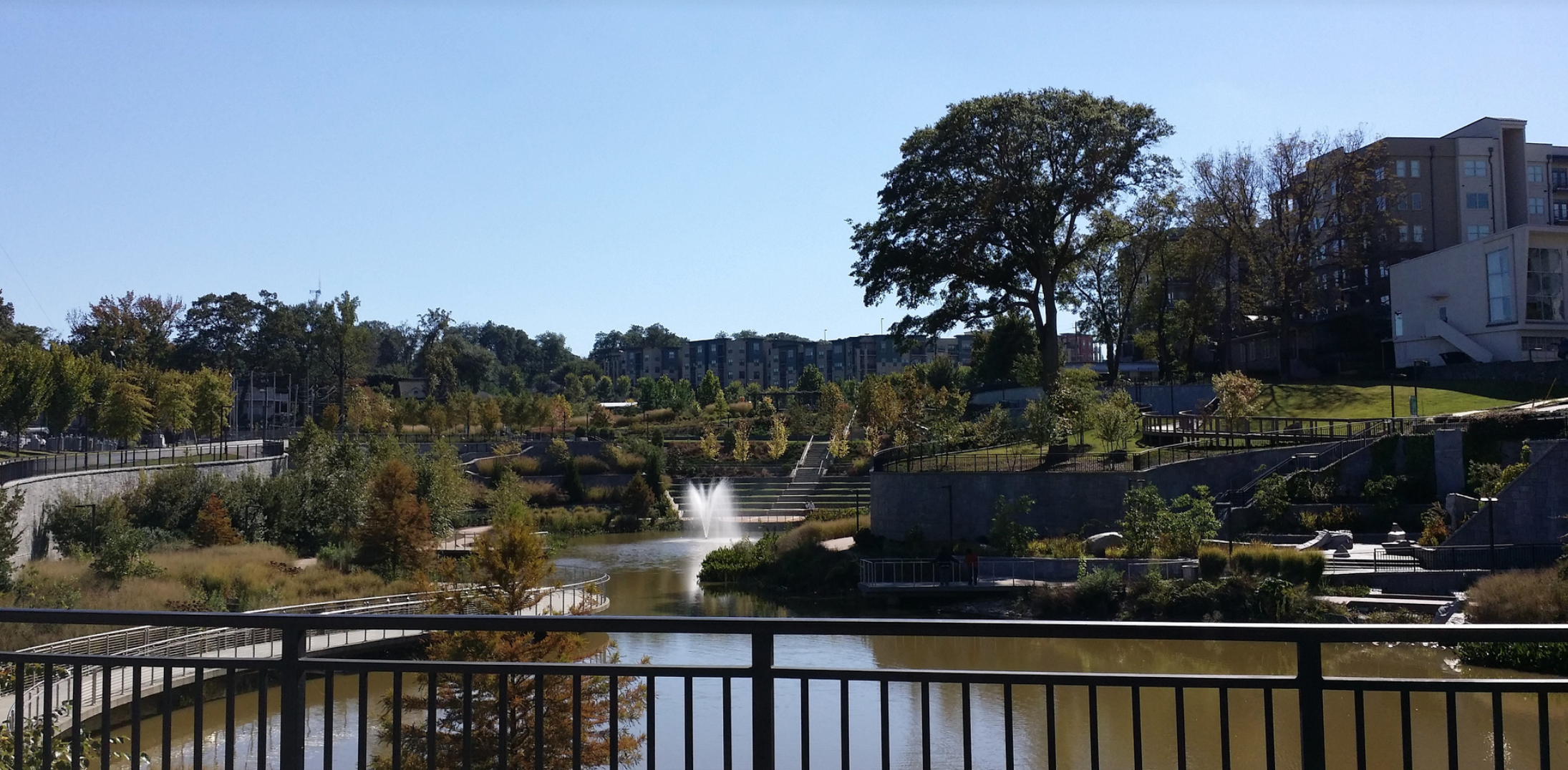Atlanta's ambitious rails-to-trails BeltLine was supposed to do things differently. With the example of New York City's High Line and its skyrocketing rents around it, Atlanta's own blockbuster park project, still under construction based on a vision first articulated in Ryan Gravel's 1999 master's thesis, knew affordable housing would have to be part of the plan. The agency behind it, Atlanta BeltLine, Inc., promised some 5,600 units of affordable housing but a new investigation from the Atlanta Journal-Constitution revealed that not only is the agency far from meeting its goal but it is largely to blame for the lack of affordability along the BeltLine.
Almost a year after Gravel and Nathaniel Smith resigned from their board positions with agency, citing concerns about the commitment to affordability, the Atlanta newspaper's investigation found that "halfway to the Beltline’s scheduled completion, it has only funded 785 affordable homes, more than 200 of which remain under construction." The investigation, conducted in conjunction with the Georgia News Lab, also revealed that the agency's own actions contributed significantly to the current crisis.
"Beltline Inc. kept units that it funded affordable for only a short time; decreased spending on affordable housing as the city entered its current housing crisis; and even passed up on millions of dollars of potential funds. The untapped funds were enough to more than double the project’s affordable housing budget, the investigation found," wrote Willoughby Mariano, Lindsey Conway and Anastaciah Ondieki for the newspaper.
Of particular concern are the predominantly African-American communities along the green space loop, where experts and neighbors have sounded the alarm on rising rents for years. An affordable housing trust fund was supposed to shore up affordability in those vulnerable areas but it fell short of its goals, partly due to the Great Recession, according to the Journal-Constitution. Even where homes were constructed, the investigation pointed out that weak protections meant homeowners only had to wait a few years before selling for a profit, thus taking that unit out of the pool of affordable options.
"That is what the big problem of the Beltline is — that the people have been overshadowed by profit,” Smith told the Journal-Constitution.
The BeltLine was actually one of a handful of national projects recently named to the High Line Network, along with Houston's Buffalo Bayou Park and Bayou Greenways project. The Network is meant to help those high-profile parks and green spaces share resources and ensure that public parks are truly public.

